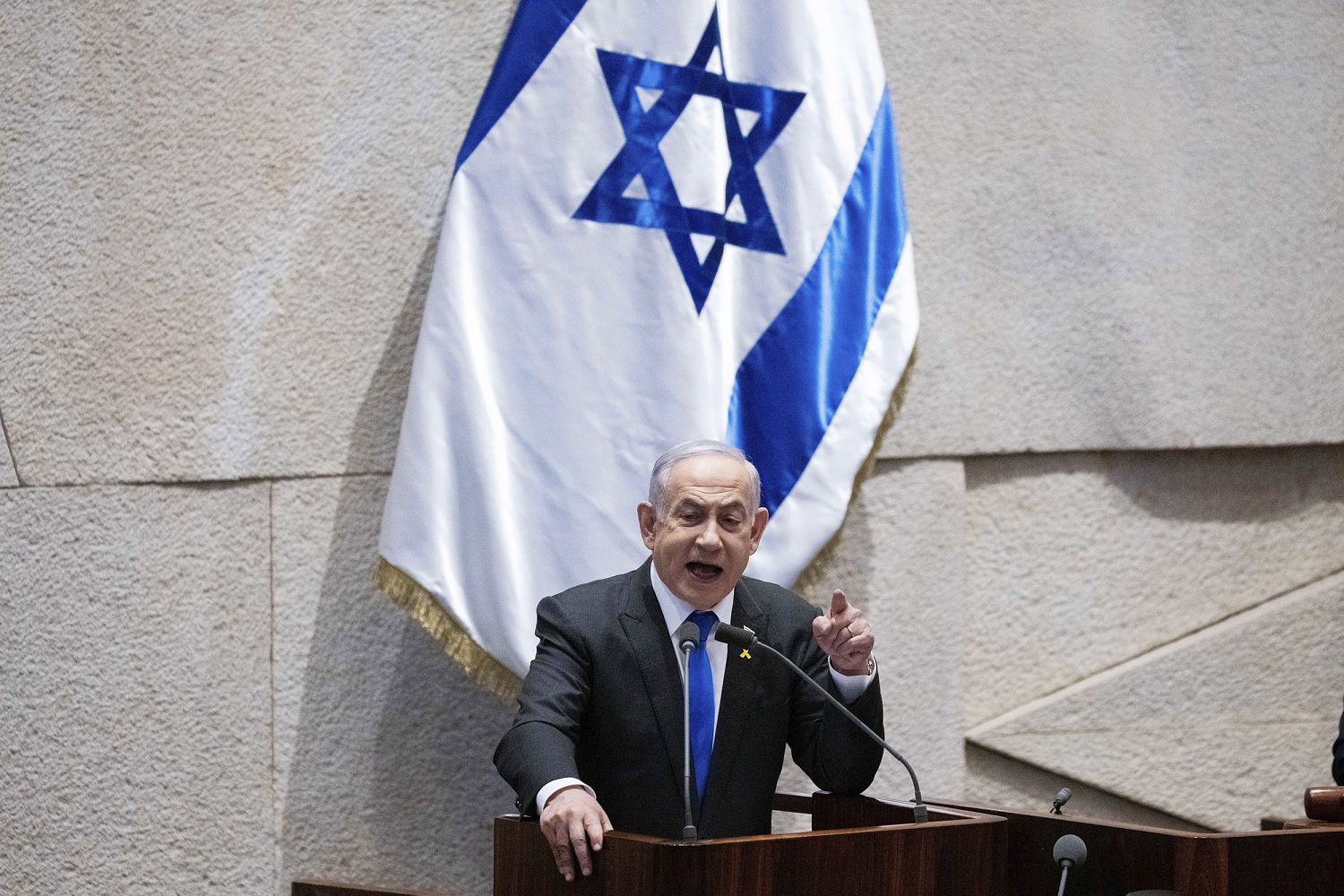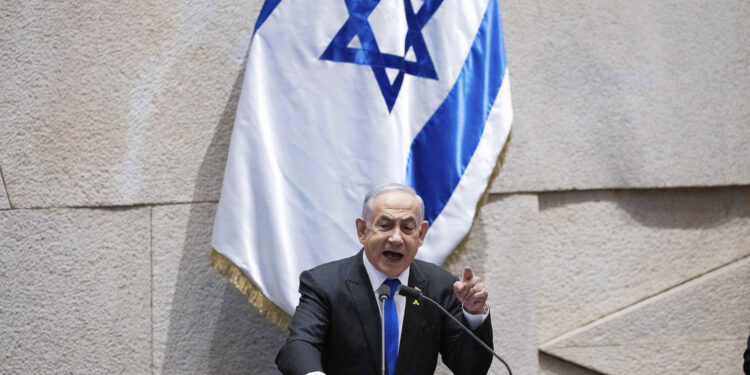
Ben-Gvir said in a statement that he had visited the contested compound of the Al-Aqsa Mosque to pray for the return of hostages, “but without a reckless deal, without surrendering.”
The resolution against Palestinian statehood was co-sponsored by parties within Netanyahu’s coalition government, which includes far-right parties.
Knesset members from opposition leader Yair Lapid’s center-left Yesh Atid party abstained from voting in the measure, though Lapid had previously supported a two-state solution. The nine lawmakers who voted in support of a Palestinian state were members of the leftist Hadash-Ta’al and Labor parties and Ra’am, a conservative Islamist party, according to Israeli newspaper The Times of Israel.
“The Knesset of Israel firmly opposes the establishment of a Palestinian state west of Jordan,” the resolution states, according to the Knesset’s website, saying it would “pose an existential danger to the State of Israel and its citizens, perpetuate the Israeli-Palestinian conflict and destabilize the region.”
The measure claims it would “only be a matter of short time until Hamas takes over the Palestinian state” and reiterated comments previously made by Netanyahu that “promoting the idea of a Palestinian state at this time will be a reward for terrorism and will only encourage Hamas and its supporters to see this as a victory.”
The vote approving the resolution comes as a growing number of countries have expressed support for the establishment of a Palestinian state. About two-thirds of the U.N.’s 193 member states now formally recognize a Palestinian state.
Knesset member Ze’ev Elkin suggested that those who support a Palestinian state but chose to abstain from voting likely did so to avoid having to “come to the Israeli public and say that they do not reject the establishment of a Palestinian state, that is unacceptable even within their own public.”
A Pew Research Center poll conducted in March and early April found that the share of Israelis who believed a way could be found for Israel and an independent Palestinian state to “coexist peacefully with each other” had dropped to 26%, down from 35% last year, before Hamas’ Oct. 7 attacks and Israel’s monthslong offensive in Gaza.
The latest findings, which polled just over 1,000 Israelis in Hebrew and Arabic, also represented a significant decline from 2013, when around half of Israelis said they believed peaceful coexistence was possible when the question was first asked, according to Pew.
On the international stage, Netanyahu’s government has faced growing criticism and isolation over the Israeli military’s deadly offensive in Gaza, which has left much of the enclave destroyed. Meanwhile, Israel has faced growing pressure to present a clear plan for what happens when the war comes to an end, with Israeli opposition to a two-state solution complicating paths to a viable diplomatic resolution.
Addressing the Knesset on Wednesday, Netanyahu defended his handling of the war in Gaza, saying Israeli forces had been effective in putting Hamas “under pressure” amid negotiations for a cease-fire deal that would bring an end to fighting in Gaza and see hostages who remain held by Hamas in the enclave released.







